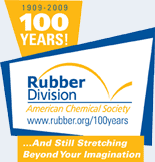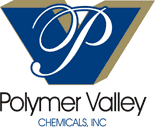![[ Visit ACS Rubber Website ]](images/logo.jpg) |
|
Centennial Elite SponsorsBecome a Centennial Elite Sponsor |
156 New Rubber Recycling Technology: Cost Effective Transformation of Rubber Crumb into Secondary RubberThursday, October 15, 2009: 1:00 PM
329 (David L. Lawrence Convention Center )
The reutilization of scrap vulcanized rubber products is an environmental problem of global concern. Converting these waste materials to a valuable resource presents an economic opportunity of major proportions.
Despite numerous attempts by many investigators, no developments in the field of scrap rubber recycling to date have provided a comprehensive, cost-effective and technologically acceptable solution to this problem. After a number of years of effort, POLYMERight has developed an original technology that satisfies these requirements. The essence of this technology is the development of a special chemical devulcanization agent (DB-26) that transforms cured rubber into a revulcanizable and processable state by selective destruction of the sulfur chemical bonds in the rubber structure. The action of elevated temperature and shear forces generated in an extruder, combined with the chemical action of DB-26 produces the devulcanized (secondary) rubber. Secondary rubber made by POLYMERight’s technology reaches the level of mechanical properties that are suitable for mass production of gaskets, seals, transporter rolls and belts, hoses, shoe soles, mats, various types of insulation and anti-vibration materials, etc. The yet unoptimized process has demonstrated production in small-scale equipment of secondary rubber with tensile strength exceeding 1,400-1,500 psi at 250%-300% elongation. The main advantages of the developed technology include: · An opportunity to easily adjust the degree of rubber devulcanization, thus producing a wide range of product properties. These range from a substitute for virgin rubber in mechanical goods formulations to a relatively low viscosity material for improved rubberized asphalt manufacture. The flexible marketing strategy ensures survivability and stable profitability of devulcanized rubber production. · The relative technological simplicity of the developed process: it utilizes easily automated standard equipment, enjoys the absence of hazardous wastes and is designed for use in a flow-through regime. · A potential to co-utilize waste streams of such widely used polymers as polyurethanes, polyesters, and polyamides. This allows the production of various “hybrid” materials that provide unique product properties at low production cost. POLYMERight's devulcanization technology was successfully demonstrated in the facilities of an independent rubber testing laboratory, Smithers Scientific Services, Inc. in Akron, OH. |









